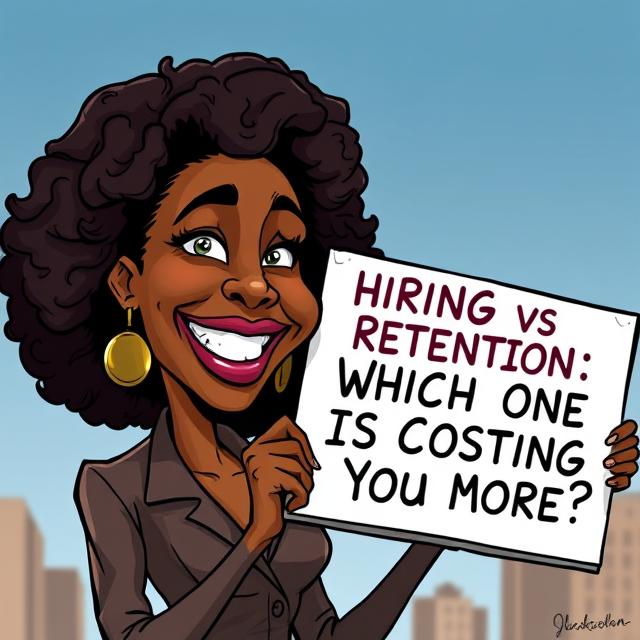Why Hiring for Attitude Might Be the Smartest Startup Strategy
Do Startups Prefer Specialized Skills or a Strong Work Ethic and Willingness to Learn?
You’ve seen the job ad before.
“We need a self-starter with five years of experience in a fast-paced environment. Must know Python, manage their own projects, thrive under pressure, and be a team player.”
It sounds like every other startup job post, right?
But when you sit across from a candidate who may not tick all the boxes but lights up when talking about learning new things, what do you do?
This is the hiring dilemma that almost every startup faces. Do we go for candidates with deep technical skills, or do we bet on someone eager, adaptable, and ready to grow?
Skills vs. Mindset — What Are We Really Hiring For?
Let’s be clear. Specialized skills matter. If you’re building software, launching a new product, or managing investor funds, you need people who know what they’re doing.
But in startups, job descriptions are living documents. Roles evolve. Priorities shift. Today’s growth hacker may need to become tomorrow’s product strategist.
That’s why more and more startups are shifting focus from “who’s the most qualified on paper” to “who’s the most coachable and culture-aligned.”
Why Startups Lean Toward Attitude and Culture Fit
Startups don’t have the luxury of time or deep pockets. Every hire carries more weight than in larger companies. Which is why many founders and HR leads agree:
It’s better to hire someone who’s a 7 out of 10 in skills but a 10 out of 10 in attitude than the other way around.
Here’s why:
- Startups change fast. Candidates who are curious and comfortable with change tend to thrive.
- Employees wear many hats. You need people who don’t say, “That’s not my job.”
- Learning beats knowing. In fast-moving industries, yesterday’s expertise can quickly become outdated.
- You can train skills. But teaching humility, emotional intelligence, or accountability is much harder.
The Real Cost of Hiring the Wrong Person
Let’s talk about what’s at stake.
Hiring someone who looks perfect on paper but doesn’t fit the culture can be more expensive than investing in someone who still needs to learn a few tools or systems.
Here’s why:
- Training time adds up when there’s no willingness to adapt
- Team morale suffers when there’s misalignment in values
- Turnover is costly. SHRM estimates that replacing an employee can cost up to 50 to 60 percent of their annual salary
- Productivity takes a hit during onboarding, ramp-up, and exits
In a startup, one bad hire can set back progress by months and burn out your top performers along the way.
Hiring for Attitude and Culture Fit — What It Actually Looks Like
So, what does it mean to hire for attitude and culture fit without sacrificing performance?
Start here:
Write job ads that reflect mindset, not just tasks
“Comfort with ambiguity” or “a love for problem-solving” can be stronger signals than listing ten software platforms
Use behavioral questions
Ask how a candidate handled failure, worked in an undefined role, or taught themselves something new
Involve multiple voices in interviews
Culture fit isn’t about similarity. It’s about values, adaptability, and shared purpose
Make your values visible
If your company prioritizes learning, collaboration, or experimentation, say it. And live it
When You Still Need Specialized Skills
Now let’s be practical. Some roles require specific expertise. You can’t hire a backend engineer who doesn’t know databases. You don’t want a financial controller who needs to Google IFRS.
The key is to separate the must-haves from the trainables.
Ask yourself:
- What absolutely needs to be done on day one?
- What can we teach within the first 60 days?
- Is this a role where continuous learning is more valuable than existing credentials?
Often, the best hires are the ones who grow into roles, not just the ones who show up fully formed.
Final Thought: Startups Are Built by Learners
Here’s the truth.
Startups are built on risk, learning, and iteration. Your hiring should reflect the same.
A strong work ethic, humility, adaptability, and a desire to contribute aren’t soft skills. They’re the foundation of long-term performance. And in many cases, they’re what turn an early-stage company into a lasting one.
So next time you’re hiring, ask yourself:
Are you looking for someone who can do the job today?
Or someone who will keep growing with the job tomorrow?
The best answer might be both. But if you have to choose, bet on attitude and teach the rest.

.jpeg)
.jpeg)

Comments
Post a Comment